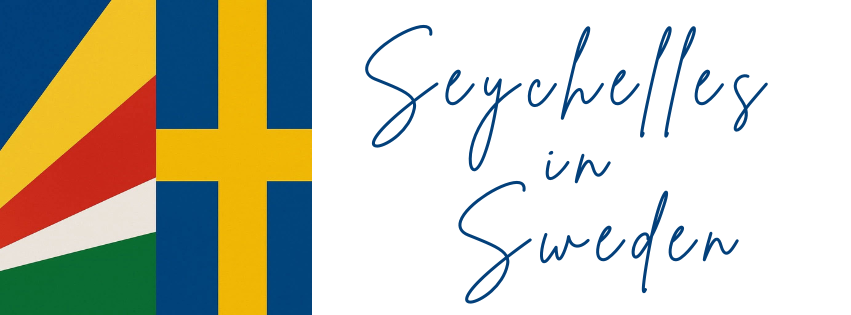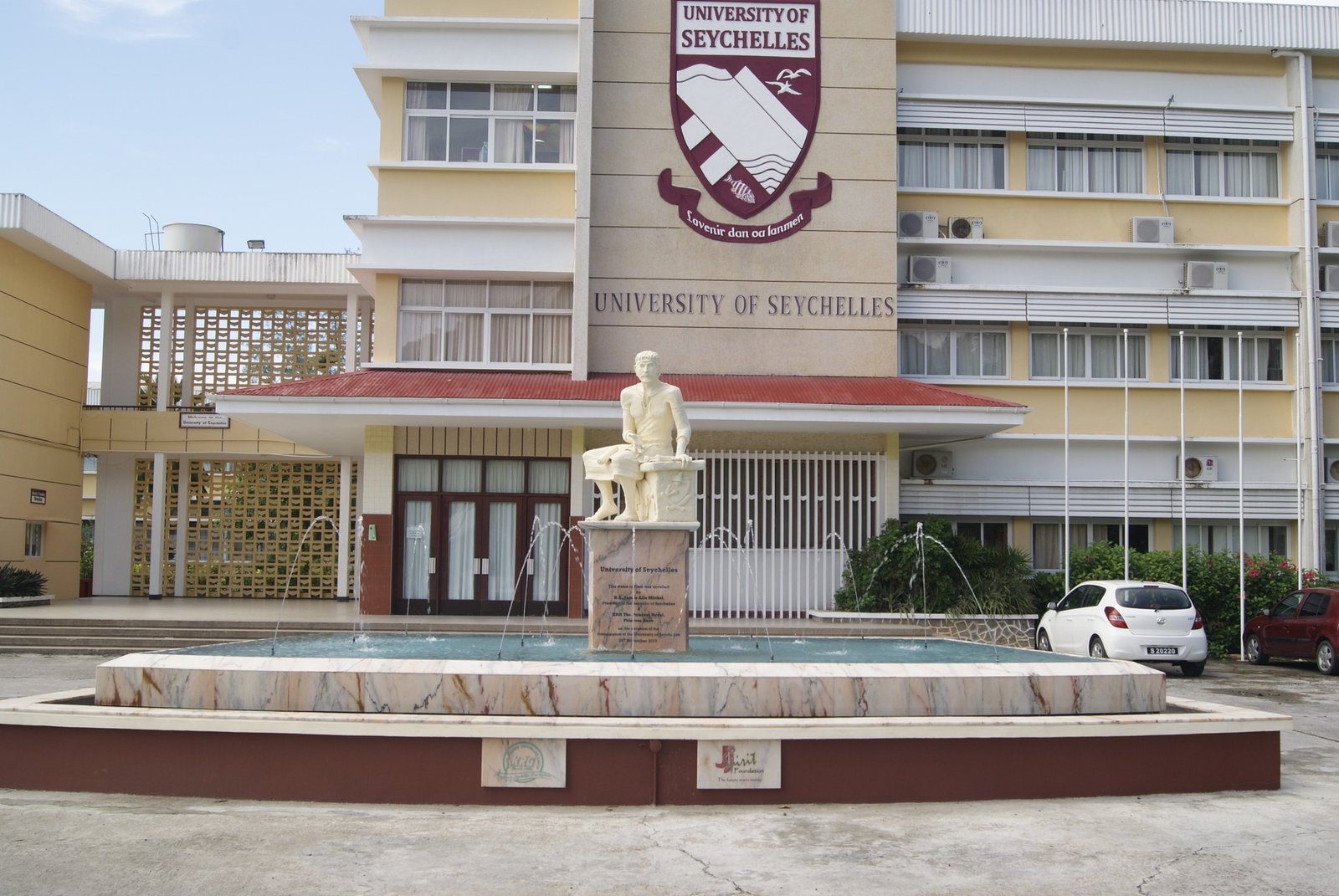Building University Partnerships in Marine Science, Climate Studies, and Hospitality Training
By Salim C. Mathieu
Education is a cornerstone of sustainable development, and international research collaboration strengthens both human capital and national capacity. For Seychelles, a small island nation with a vibrant tourism sector, a rich marine ecosystem, and growing climate challenges, partnerships with Swedish universities and research institutes can unlock knowledge, skills, and innovation. Sweden, known for world-class higher education, applied research, and vocational training, provides a compelling model for collaborative programs across marine science, climate studies, and hospitality training.
1. The Rationale for Seychelles–Sweden Academic Collaboration
Seychelles faces two intersecting needs: first, the development of a skilled workforce to sustain the blue economy, climate resilience, and tourism growth; second, the establishment of robust research and innovation systems to guide policy and inform sustainable practices. Swedish universities, with strong international networks and practical expertise, can provide opportunities for knowledge exchange, co-supervised research, and vocational skill development.
Programs such as Erasmus Plus, bilateral MOUs between institutions, and joint research initiatives have proven effective for small states in building human capital. For Seychelles, these partnerships offer not only advanced education but also exposure to cutting-edge methodologies in marine science, renewable energy, and hospitality management.
2. Marine Science and Ocean Research
Seychelles’ Exclusive Economic Zone (EEZ) spans over 1.3 million km² of the Indian Ocean. Sustainable management of this area requires expertise in fisheries, coral reef management, oceanography, and marine biodiversity monitoring. Swedish universities, such as the University of Gothenburg’s Department of Marine Sciences and SLU Aqua, have extensive experience in marine research, including ecosystem modeling, sustainable fisheries, and climate impact assessments.
Key opportunities for Seychelles include:
Joint MSc and PhD programs: Co-supervised degrees in marine biology, fisheries management, and marine ecology.
Research internships: Swedish students and faculty could collaborate on Seychelles-focused field studies, while Seychellois students gain access to Swedish labs and methodologies.
Data sharing and modeling: Using Sweden’s expertise in oceanographic modeling and stock assessment to improve national fisheries management and climate resilience planning.
These exchanges would not only strengthen Seychelles’ research capacity but also facilitate long-term monitoring programs critical for sustainable ocean governance.
3. Climate Studies and Adaptation Research
Seychelles is highly vulnerable to climate change. Rising sea levels, coral bleaching, and extreme weather events threaten livelihoods, infrastructure, and biodiversity. Swedish institutions, including Stockholm University’s Department of Environmental Science and RISE Research Institutes of Sweden, provide leadership in climate science, adaptation strategies, and environmental policy.
Collaboration can take the form of:
Joint research projects on island climate resilience, disaster risk reduction, and adaptation planning.
Capacity building programs for Seychellois government and NGO staff, integrating climate data analysis, GIS mapping, and scenario planning.
Exchange programs for students and early-career researchers, promoting hands-on experience with Swedish climate models and sustainable urban planning techniques.
Through these initiatives, Seychelles can build a cadre of experts capable of translating scientific insights into actionable policies, aligned with international climate frameworks like the Paris Agreement and UNFCCC reporting requirements.
4. Hospitality and Tourism Training
Tourism accounts for a significant portion of Seychelles’ GDP. Ensuring world-class service and management skills is essential to maintain competitiveness and sustainability. Sweden has a strong vocational education system and hospitality training programs that emphasize experiential learning, sustainability, and innovation.
Collaborative opportunities include:
Vocational and certificate programs for Seychellois hospitality staff, integrating Swedish best practices in sustainable resort management, culinary arts, and eco-tourism.
Student exchange programs: Seychelles students can gain exposure to Swedish hotel chains, eco-resorts, and culinary institutes, while Swedish students can intern in Seychelles, contributing to knowledge transfer and cross-cultural experience.
Sustainable tourism research: Joint projects can explore eco-certification, waste reduction, energy efficiency, and visitor experience enhancement, feeding into policy and operational improvements in Seychelles’ tourism sector.
Such collaborations ensure that human capital development aligns with the country’s strategic vision for a resilient, high-quality tourism economy.
5. Programmatic and Institutional Frameworks
To maximize impact, Seychelles and Sweden can develop structured programs through:
University MOUs: Formal agreements to co-develop curricula, research projects, and faculty exchanges.
Erasmus Plus-style programs: Support for mobility of students, teachers, and researchers between Seychelles and Sweden.
Joint research centers or labs: Shared facilities focusing on marine and climate studies, possibly supported by Swedish research grants and Seychelles government funding.
Scholarship schemes: Funded by Swedish agencies or co-financed with Seychelles government to ensure access for talented students.
These institutional frameworks reduce administrative barriers and provide a clear roadmap for scaling collaboration over time.
6. Benefits for Both Nations
For Seychelles:
Access to advanced technical knowledge and methodologies in marine science, climate adaptation, and hospitality management.
Development of a skilled workforce to implement national strategies for sustainable ocean use, climate resilience, and tourism excellence.
Opportunities to build international research visibility and attract additional funding.
For Sweden:
Strengthened bilateral relations and global influence through education diplomacy.
Opportunities for Swedish students and researchers to conduct fieldwork in a unique tropical ecosystem.
Expansion of Swedish higher education and vocational models to small island states, creating long-term institutional partnerships.
7. Challenges and Solutions
Challenges may include:
Logistics and travel costs: Mitigated through blended mobility programs, virtual learning platforms, and short-term field exchanges.
Credit transfer and accreditation: Establish joint degree frameworks and recognition agreements between universities.
Language and cultural adaptation: Incorporate English as the working medium and offer cultural orientation programs.
Sustainability of funding: Secure multi-year commitments from Swedish agencies, scholarships, and private-sector sponsorships.
By addressing these challenges proactively, both Seychelles and Sweden can ensure that educational exchanges deliver meaningful, long-term outcomes.
8. Roadmap for Implementation
Mapping and scoping (2025‑26): Identify potential partner universities, research themes, and training priorities.
Formal agreements (2026): Sign MOUs and define curricula, joint projects, and faculty exchanges.
Pilot programs (2026‑27): Launch student and faculty exchanges in marine science, climate studies, and hospitality.
Monitoring and scaling (2027‑30): Evaluate outcomes, expand programs, integrate digital learning, and seek regional replication.
Institutionalization: Establish a Seychelles–Sweden Education and Research Network to coordinate all initiatives and facilitate sustainability.
9. Conclusion
Education and research exchanges are an essential tool for building a resilient, innovative, and sustainable Seychelles. Through strategic partnerships with Swedish universities and research institutes, Seychelles can strengthen its marine science expertise, climate adaptation capacity, and hospitality workforce. These programs not only improve skills and knowledge but also enhance bilateral relations and create a lasting network of professionals and institutions dedicated to sustainable development.
By prioritizing marine science, climate studies, and hospitality training, Seychelles can leverage Swedish experience, technology, and education diplomacy to become a model of small island innovation and resilience.

